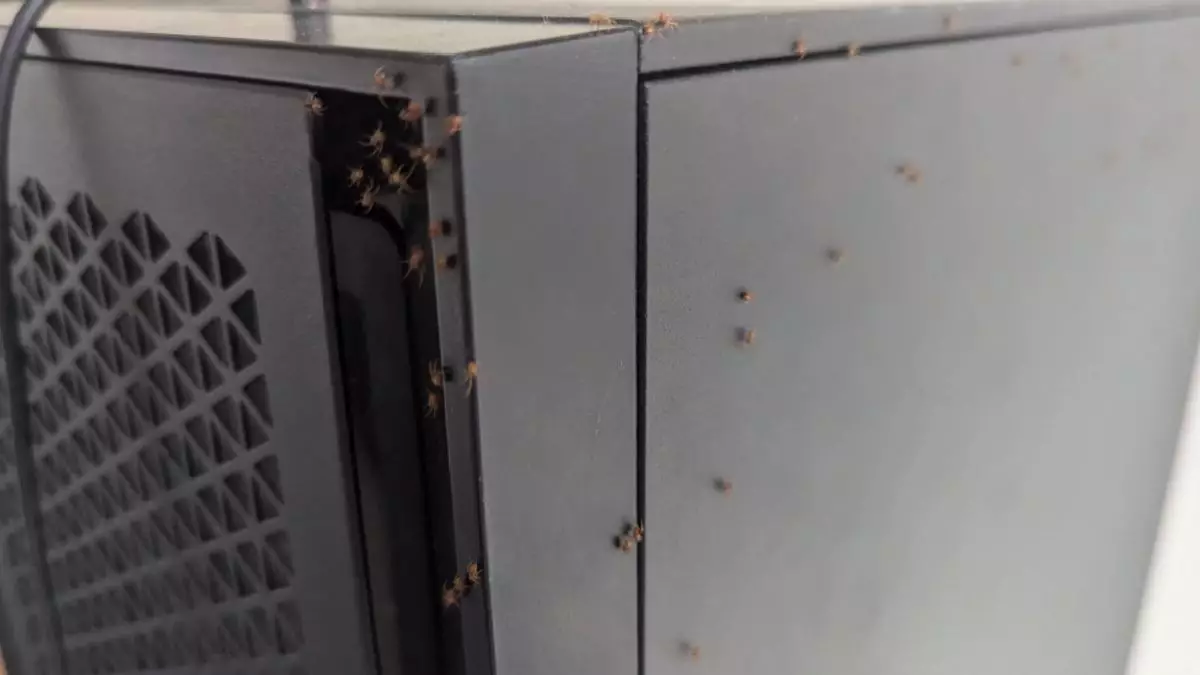In a world increasingly dominated by technology, there are still moments when nature unexpectedly breaches our digital sanctuaries. A recent incident shared by Reddit user Duck_Shover serves as a stark reminder that the world’s smallest creatures can sometimes cause the biggest disturbances, particularly when they make their home inside our beloved computers. This tale, both amusing and discomforting, explores the intersection of technology and nature, shedding light on our common fears regarding pests and the lengths we go to rid ourselves of them.
The Intrusive Nature of Critters
Let’s face it: spiders do not elicit fond feelings in many individuals. While some people may admire their intricate webs and ecological roles, the mere thought of a sonorous PC housing spider eggs conjures images of nocturnal havoc and untidy infestations. Duck_Shover’s situation exemplifies this fear, igniting horror at the prospect of unexpected visitors lurking within an otherwise pristine computer setup. However, the reality of this particular case turned out to be less dire than it first appeared. The concern of mini-arachnids swarming in every corner of the machine was mitigated by the fact that most of the spiders were merely congregating on the exterior.
Assessing the Situation
When faced with such a predicament, the immediate reaction might be panic, leading to dramatic responses like burning the PC or relocating to an entirely different house. However, Duck_Shover opted for a more rational approach, demonstrating the benefits of a level-headed strategy when dealing with unexpected intruders. Their process hinged on careful cleaning—removing the PC panels to easily vacuum the critters away and thoroughly cleaning the surrounding area. This thoughtful response highlights an important lesson: often, dealing with pests is less about drama and more about diligence.
What Duck_Shover’s experience exemplifies is not only a chance to confront a potentially anxiety-inducing scenario but also an invitation to learn from it. Although an initial estimate suggested that the spider egg was likely to hatch countless offspring, the reality proved much simpler. Only around 50 to 100 spiders were unearthed, showcasing that our fears often exaggerate the situation at hand. This introspection encourages us to reframe our perceptions of arachnids—and perhaps pests in general.
The incident serves as a reminder to all tech enthusiasts: maintaining an eye on our devices can prevent such unwelcome surprises. Regular cleaning and inspections become essential practices, not merely for dust accumulation but also for ensuring our gear remains uninhibited by uninvited guests.
Amusingly, Duck_Shover’s light-hearted handling of the issue and the narrative’s wit add layers to the overall experience. While some might relate to the instinctual urge to react dreadfully, they chose humor and pragmatism instead. The thought of disassembling the entire house to hunt for the mother spider could inspire laughs rather than screams, revealing an important psychological aspect of dealing with our fears.
The humor intertwined in this tale serves to underline that nature has a place—whether inside or outside our homes, the coexistence of human habitation and wildlife is inevitable. Recognizing this may help bridge the often exaggerated divide we perceive between ourselves and the creatures around us.
Duck_Shover’s unexpected encounter with a spider egg is more than a mere illustration of an infestation; it represents a broader narrative about the overlapping lives of technology and nature. Ultimately, the harmonizing of our human spaces with the natural world could teach us to appreciate the quirks of life, even when they manifest as unsettling surprises. The next time you approach your computer, perhaps pause, breathe, and become a little more aware; after all, the world is filled with little wonders, even those that might momentarily inspire dread. Remember, the key lies in embracing the unexpected, equipped with the knowledge and composure to address whatever might come crawling your way.

